Introduction: Service Tax is a vital part of Indirect Tax Structure of India. In simple words it can be spelled as tax on specified services provided by the Service Provider. Usually the person providing the Services is liable to pay Service tax but here comes an exception, where the service provider is not liable or is partially liable to pay service tax & the recipient has to bear the liability to pay the tax to the Government on behalf the Service Provider. This concept with dual understanding is discussed as follows:
Reverse Charge Mechanism:
- “Reverse charge” of service tax as it is called was encapsulated under Rule 2(1)(d) of the Service Tax Rules, 1994 read with Section 68(2) of the Finance Act, 1994.
- Section 66B of Finance Act, 1994 is charging section for levy of service tax.
- As per Section 68(1) of Finance Act, 1994 the person providing services shall be liable to pay service tax in respect of taxable services rendered. But, Section 68(2) specifies the services where the service recipient shall be liable to pay service tax to the Government.
- Notification 30/2012-ST dated 20th June, 2012 has been issued which supersedes Notification 36/2004-ST dated 31st December, 2004 for the purpose of determining the service tax payable by recipient of service and in some specific cases by both the provider and recipient of the services.
- Notification 30/2012-ST dated 20th June, 2012 is applicable for the services provided on or after 1st July, 2012.
Services Covered by Reverse Charge Mechanism:
Following are the Services covered by Section 68(2) of the Finance Act, 1994 as the services where the service recipient shall be liable to pay service tax entirely or partially:
The aforementioned Services are discussed as follows:
A) Services Having Reverse Charge:
These are the services for which Service Receiver pays 100% service tax on behalf of Service Provider. The services forming part of this Section are discussed with brief explanation herewith:
Sr. No. | Type of Service | Description of Service | Explanation Point covering the Service (Explained below the Table) |
1 | Insurance Agent | Service by an insurance agent to a person carrying on insurance business | – |
2 | Sponsorship Business | Sponsorship Services, to any body corporate or partnership firm located in the taxable territory | – |
3 | Services by Arbitral Tribunal or Advocate | Services by Arbitral Tribunal or Individual Advocate or firm of Advocates by way of legal services to any business entity located in the taxable territory | Explanation No. I |
| 4. | Services by Director of a Company (Applicable with effect from 07th August,2012) | Services provided by director in case where he/she is not in a full time Employment | Explanation No. II |
5 | Goods Transport Agency(GTA) | Services in respect of transportation of goods | Explanation No. II |
6 | Support Services Provided by Government & Local Authorities | Support Services by Government or Local Authority excluding Renting of immovable property and services by department of posts; in relation to Aircraft or vessel, transportation of goods or passengers as specified in clause (a) Section 67D (i) to (iii) of the Finance Act, 1994 | Explanation No. III |
7 | Service recipient located in Taxable Territory, service provider located outside Taxable Territory (formerly 66A) | Import of Services by service recipient in taxable territory | Explanation No. IV |
Explanation Points:
I. Services by Arbitral Tribunal & Advocate:
- In the given case Services provided by an arbitral tribunal, an individual advocate or firm of advocates by way of legal services to any person other than a business entity or a business entity with a turnover up to Rs.10 Lacs in the preceding financial year is exempt vide Entry No 6 of the Exemption Notification No 25/2012-ST dated 20th June, 2012.
- Where “Business Entity” means any person ordinarily carrying out any activity relating to industry, commerce or any other business or profession as per Section 65B (1) of the Finance Act, 1994.
II. Services by Director of a Company:
- Service tax is payable by company on services provided by non-executive, nominee and independent directors to the company w.e.f. 1-7-2012. Service tax is not payable in case of Managing Director or whole-time director or Executive Director, if the director is in full time employment of the company.
- The services provided by Director for “non contractual terms” shall be liable for RCM & Company will have to pay Service Tax on the same.
For e.g.; sitting fees paid to directors for attending meetings of the Board and Committees of the Board, on commission or other remuneration paid, if any.
- Ø Reverse charge provisions can apply only if a service is otherwise taxable. If a service is not taxable, it cannot be made subject to service tax, as reverse charge provisions are only for collection and payment of service tax. The reverse charge provisions cannot create a service tax liability which is not there under service tax provisions.
III. Goods Transport Agency:
- It covers services provided by-
A goods transport agency in respect of transportation of goods by road, where the person liable to pay freight is,—
a) any factory registered under or governed by the Factories Act, 1948 (63 of 1948);
b) any society registered under the Societies Registration Act, 1860 (21 of 1860) or under any other law for the time being in force in any part of India;
c) any co-operative society established by or under any law;
d) any dealer of excisable goods, who is registered under the Central Excise Act, 1944 (1 of 1944) or the rules made there under;
e) any body corporate established, by or under any law; or
f) any partnership firm whether registered or not under any law including association of persons;
- The person who is liable to pay for services to GTA shall be the person responsible to pay service tax.
For e.g.
 Ø Exemptions From Service Tax for GTA:
Ø Exemptions From Service Tax for GTA:
i. Vide Notification No. 25/2012-ST dated 20th June, 2012, service tax has been exempted, in relation to-
- Services provided by a goods transport agency, for the transportation of fruits, vegetables, eggs, milk, food grains or pulses.
- Goods where the gross amount charged on a consignment in a single goods carriage does not exceed R1,500/- or goods for a single consignee does not exceed Rs. 750/- are also exempt.
ii. It is clarified as per Notification 26/2012-ST, that service tax is payable only on 25 % of freight. Such liability on 25 % of freight amount shall be discharged in full by the service recipient provided CENVAT credit has not been availed by him/her.
IV. Support Services provided by Government or Local Authority:
- For the purpose of this service, Section 65B (31) of Finance act,1994 defines Local Authorities as follows:
- a Panchayat as referred to in clause (d) of Article 243 of the Constitution;
- a Municipality as referred to in clause (e) of Article 243P of the Constitution;
- A Municipal Committee and a District Board, legally entitled to, or entrusted by the Government with, the control or management of a municipal or local fund; (41 of 2006.)
- a Cantonment Board as defined in Section 3 of the Cantonments Act, 2006;
- a regional council or a district council constituted under the Sixth Schedule to the Constitution;
- a development board constituted under Article 371 of the Constitution; or
- a regional council constituted under Article 371A of the Constitution;
- As per Section 65(B)(49), “Support Services” means infrastructural, operational, administrative, logistic, marketing or any other support of any kind comprising functions that entities carry out in ordinary course of operations themselves but may obtain as services by outsourcing from others for any reason whatsoever and shall include advertisement and promotion, construction or works contract, renting of immovable property, security, testing and analysis.
V. Service recipient located in Taxable Territory, service provider located outside Taxable Territory (formerly 66A):
For the purpose of this service,
- Ø “Taxable Territory” means the territory to which the provisions of this Chapter apply (as per Section 65(B) (52)) i.e. India excluding the state of Jammu & Kashmir.
- Ø Even if the Service Provider is located outside taxable territory, the Service Tax is payable by recipient of Service
B) Services Having Joint Charge (partial reverse charge):
These are the services where Service provider & Receiver, Jointly bears the Service Tax Liability.
Joint charge is applicable to specified services where the service provider is an individual, HUF or a partnership firm, whether registered or not, including association of persons and the recipient is an entity registered as a body corporate.
The three specified Services Covered under Joint Charge are discussed as follows:
Sr. No. | Type of Service | Description of Service | % of service tax payable by Service Provider | % of service tax payable by Service Receiver | Explanation Point Covering the Service (Explained below the Table) |
1 | Hiring or Renting of Motor Vehicle | Hiring a Motor Vehicle,With Abatement (60% – Notification No. 26/2012- ST dated June 20, 2012) | Nil | 100% | Explanation Point No. I |
| Without Abatement | 60% | 40% | Explanation Point No. I | ||
2 | Supply of Manpower | Supply of Manpower in any manner | 25% | 75% | Explanation Point No. II |
3 | Works Contract | Services in execution of works contract | 50% | 50% | Explanation Point No. III |
Body Corporate Includes-
- Company, LLP & Co-Operative Society Only
Explanation Points:
I. Hiring or Renting of Motor Vehicle: In case, the aforesaid services are provided to a Company, by any person, who is not engaged in the similar line of business, the responsible person to pay service tax shall be Service Provider.
II. Supply of Manpower: The concept of Joint charge is not applicable in case, the aforesaid service is provided by a Company i.e., Company would have to pay entire tax of 100% and recipient would not be required to pay.
III. Works Contract:
- As per Section 65B(54)- “Works Contract” means a contract wherein transfer of property in goods involved in the execution of such contract is leviable to tax as sale of goods and such contract is for the purpose of carrying out construction, erection, commissioning, installation, commissioning, fitting out, repair, maintenance, renovation, alteration of any movable or immovable property or for carrying out any other similar activity or a part thereof in relation to such property the Service Tax in respect of the works contract is payable on portion of services involved in such contract.
- The value of Services to be added in execution of Works Contract is to be calculated as per Service ( determination of value) Rules, 2012.
- The concept of Joint charge is not applicable in case, the aforesaid service is provided to person other than company. i.e., in such case service provider will have to pay entire tax of 100% and recipient would not be required to pay.
Independent Liability:
- Ø Both Service Provider & Service Recipient are “Independently” liable to pay their portion of Service Tax.
- Ø Even if Service Provider doesn’t pay Service Tax, the Service Recipient has to discharge his portion of liability independently.
Benefit of Threshold Limit:
- Ø The benefit of threshold exemption of Rs. 10,00,000/- is not available to Service Recipient in respect of value of taxable services on which service tax is payable under reverse charge as prescribed & notified in Section 68(2).
- Ø The Service Tax liability attracts under the Reverse Charge is not on Accrual Basis (as applicable for all other services under normal charges) but same is attracted when the payment is made to the Service Provider.
- Ø If the payment is not made to Service Provider within 6 Months from the date of provision of Service then the liability for Service Tax payment will be attracted on Principle of Accrual Basis.
Interest on non payment or late payment of Service Tax: In a case where payment is not made as stipulated interest will have to be paid under Rule 14 of the Cenvat Credit Rules (CCR) read with Section 75 of the Finance Act.
CENVAT Credit Availability:
- Rule 3 of CCR specifically bars use of cenvat credit where the person liable to pay tax is the service recipient. Hence, it is not possible to utilise the CENVAT credit for reverse charge payments. A Certificate is required to be obtained from Service Provider about Non availment of CENVAT Credit.
- Rule 5B has been introduced in the Cenvat Credit Rules to provide for “Refund” upon the service provider being unable to utilise the cenvat credit availed on inputs and input services for payment of service tax on such output services subject to certain safeguards that are to be prescribed.
- The payment of Service Tax by Service Recipient has to be made by way of CASH in GAR-7 Challan.
Conclusion:
The above discussion is a small attempt to explain the broad purview of Reverse charge Mechanism. It plays a vital role as a part of Service Tax practice & broadens its scope to the large economy of India.
(Article is Authored by Roshni Panchal A CA Final Student from Vadodara)









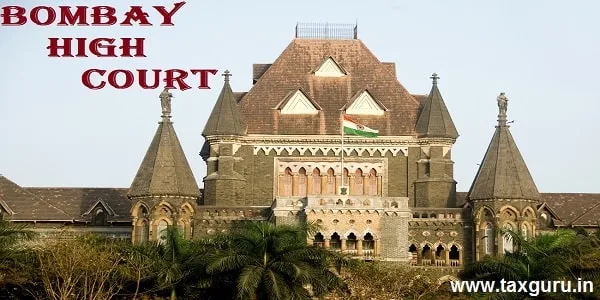




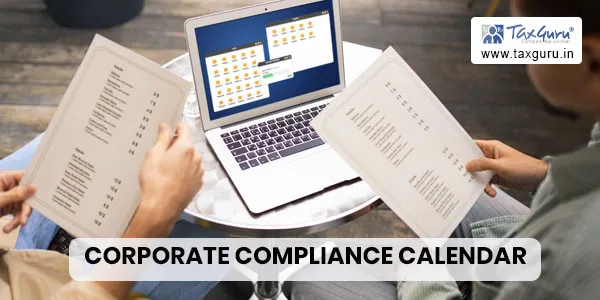

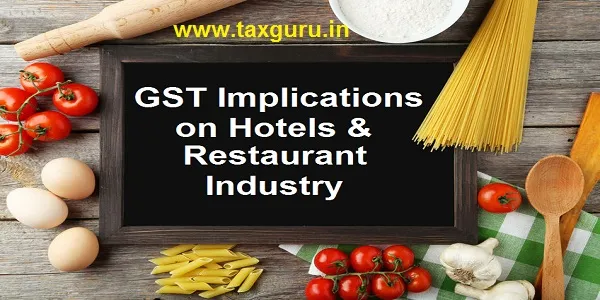



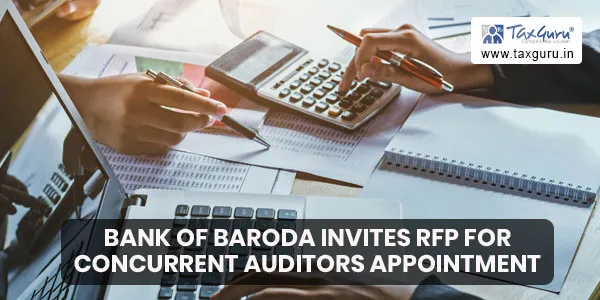
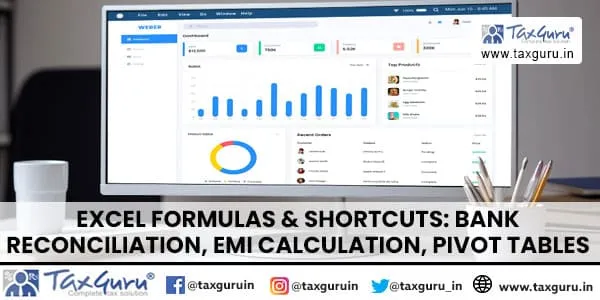
can an advocate be made liable to pay service tax by the service recipient, under the terms of a retainership contract.
Can anyone please confirm, if an advocate provides services under a retainership contract to a business entity having turnover of more than 1 million. In terms of the contract the liability of payment of service tax has been put on the advocate.
a. Can such a obligation be put on the advocate by the service recipient;
b. Will non payment of service tax by the advocate, invite any penal action from the service tax authorities;
c. Can such contract be enforced by the service recipient company against the Advocate, with respect to payment of service tax by the advocate?
Request your kind assistance in clarifying the above issues.
Regards,
NICE ARTICLE
Body corporate doesn’t include co-operative society. clause 2(bc)of notification no. 36/2012 defines body corporate. “Body corporate has the meaning assigned to it in clause (7) of section 2 of the Companies Act, 1956 (1 of 1956)”;Section 2(7) in The Companies Act, 1956 and as per clause 2(7) cooperative is excluded.The bare is reproduced:-
” body corporate” or” corporation’ includes a company incorporated outside India but 1[ does not include-
(a) a corporation sole;
(b) a co- operative society registered under any law relating to co- operative societies; and
(c) any other body corporate (not being a company as defined in this Act) which the Central Government may, by notification in the Official Gazette, specify in this behalf;]
In the article on ST Reverse Charge Mechanism published on 13th Aug, 13 it is mentioned under head (B)that if the service recipient is a company, joint charge applies. At the same time, under explanation I in the same head,it is mentioned that service provider is liable if the company is not engaged in the similar line of business.
Now, if a company which is engaged in a business other than hiring / renting a cab to transport passengers is liable to pay service tax on receipt of services under hiring / renting a cab provided by an individual, reverse charge mechanism does not apply. Is my understanding correct! Please share your views.
I can learn from this articles. Thanks!
Hiring or Renting of Motor Vehicle: In case, the aforesaid services are provided to a Company, by any person, who is not engaged in the similar line of business, the responsible person to pay service tax shall be Service Provider.
Plz. check wordings of this sentenance, i think it is wrong, plz. clarify
Realy a useful and nice article for practical use as well as for CA-final students.
Thanks a lot.